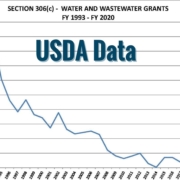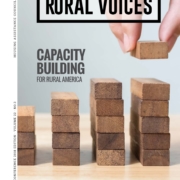Agriculture Secretary Sonny Perdue announced a full list of State Directors for USDA Rural Development and for the Farm Service Agency on November 3, 2017. The RD list below is from USDA’s press release.
Rural Development State Directors
Alabama: Chris Beeker
Chris Beeker grew up on a catfish and cattle farm in the smallest county of his state and through extensive experience of working on the family farm and other business ventures has firsthand knowledge of the positive and important impacts of USDA programs for all communities and especially rural America.
Alaska: Jerry Ward
Jerry Ward is an Athabascan Indian from the Caribou Tribe, born and raised in Alaska, and has a record of public service, including in the U.S. Navy Seabees in Vietnam, as Rural Affairs Coordinator with the Department of Corrections, as Legislative Liaison for the Alaska Energy Authority. He has also served as a member of the State House of Representative, with a seat on the Finance Committee, and in the State Senate as Vice Chairman of the Finance Committee addressing rural Alaska issues.
Arizona: J.C. Sherman III
J.C. Sherman comes to USDA with vast experience from the Departments of Energy and Commerce, in addition to private sector experience from Executive Protection, Director of Sales Operations for a division of Schneider Electric and Business Development Director with other fortune 50 companies.
Arkansas: David Branscum
David Branscum is serving his fourth term in the Arkansas House of Representatives and is a cattleman who has been active with several civic organizations serving to empower rural Arkansas.
California: Kim Dolbow Vann
Kim Vann has been working and serving in California’s Rural Communities for nearly 20 years and her career gives her an excellent understanding of California’s’ Rural Communities needs and the experience to solve problems.
Colorado: Sallie Clark
Sallie Clark is a former El Paso County, Colorado commissioner, city councilmember, well known small-business entrepreneur, and past President of the National Association of Counties (NACo). She has spent much of her career representing rural America.
Connecticut, Massachusetts, and Rhode Island: George Krivda
George Krivda has worked at the state Department of Agriculture for nearly ten years serving as a Project Manager, Public Information Officer, Legislative Program Manager and Chief of Staff.
Delaware and Maryland: Denise Lovelady
Denise Lovelady brings over 20 years of executive and management experience in both the public and private sectors to USDA, specifically in the areas of government, legislative affairs, public relations, economic development, agriculture, natural resources, real estate, and community outreach.
Florida: Sydney Gruters
Sydney Gruters has worked for U.S. Representative Vern Buchanan for more than 10 years in an official capacity and has served as the congressman’s liaison regarding all USDA issues that affect rural development.
Georgia: Joyce White
Joyce White served as Chief of Staff in the Georgia Department of Agriculture, was an executive assistant for the CEO of Georgia-Pacific, served the same role in Governor Sonny Perdue’s office, and has focused on helping rural Georgia.
Hawaii: Gigi Jones
Gigi Jones founded a grassroots organization known as Cool Our Keiki and has worked in construction, small business, engineering and business development for over 20 years. She knows first-hand the challenges of living in remote and rural areas as she has lived, worked and volunteered in rural areas inside and outside of the U.S. for many years.
Idaho: Layne Bangerter
Layne Bangerter comes to RD directly from his role at the U.S. Environmental Protection Agency. He previously held varied roles in the Fish and Wildlife Service and served as State Director for Senator Mike Crapo.
Illinois: Douglas Wilson
Douglas Wilson is a 3rd generation farmer, lifelong resident of rural Illinois, and past Illinois State Director for RD. He has served in leadership roles in a variety of agricultural, community, and not-for-profit organizations.
Indiana: Michael Reed Dora
As a first generation agricultural producer of livestock and grains since 1975, Michael Dora brings to the Trump Administration a deep knowledge of farming and business skills along with wide-ranging experiences of dedicated service and leadership to his state and community.
Iowa: Annette Sweeney
Annette Sweeney brings local and international experience to Rural Development, having served as a teacher, family farmer, church volunteer, and most recently as a member of the Iowa House of Representatives.
Kansas: Lynne Hinrichsen
Lynne Hinrichsen joined the Kansas Department of Agriculture in 2013 as the Agribusiness Development Director. Prior to serving in the public sector, she worked in sales, marketing, advertising and human resource consulting.
Kentucky: Hilda Legg
Hilda Legg brings more than 30 years of experience in federal government agency management, as a consultant for rural infrastructure, in economic development in rural Appalachia, in education, project management, and as a business owner. She has served under three U.S. presidents to further opportunities for rural communities and residents in job creation and economic growth.
Louisiana: Dr. Carrie Castille
Dr. Carrie Castille served as the Associate Commissioner for the Louisiana Department of Agriculture and Forestry, held a faculty position with the Louisiana State University AgCenter, and created the successful Louisiana Master Farmer Program.
Maine: Tim Hobbs
Tim Hobbs brings over fifteen years of experience working with and for potato growers, processors, and dealers in Maine on issues that affect their competitiveness and profitability.
Michigan: Jason Allen
Jason Allen is a small businessman, veteran, and former State Senator, who currently works on rural development for the Michigan Department of Agriculture and Rural Development.
Minnesota: Brad Finstad
Brad Finstad served three terms in the Minnesota House of Representatives and is currently the CEO of the Center for Rural Policy and Development, which is Minnesota’s only statewide, nonprofit, nonpartisan rural policy research center.
Mississippi: John Rounsaville
John Rounsaville served as State Director for USDA Rural Development in the Administration of President George W. Bush and brings to the Trump Administration two decades of experience in economic and community development, infrastructure planning, and public policy.
Missouri: Jeff Case
Jeff Case is Vice President and Senior Relationship Manager at Rabo AgriFinance, LLC and has spent his career working in the agriculture industry in the areas of Production, Finance and Education.
Montana: Charles Robison
Charles first joined USDA as a Forest Service firefighter in 1998, working on an engine crew, as a Hotshot and as a helitack rappeller. He looks forward to pursuing his passion for the struggles of rural Montana and the working families who call it home.
Nebraska: Karl Elmshaeuser
Karl Elmshaeuser has served as the Executive Director for the West Central Nebraska Development District for the past 11 years, served two terms on the Nebraska Rural Development Commission, currently serves on the Nebraska Regional Officials Council and the National Association of Development Organizations, served six years in the US Marine Corps, and is a University of Nebraska graduate.
Nevada: Philip Cowee
Philip Cowee has spent nearly 20 years developing properties and running businesses in Lyon County, lives in Dayton with his wife and five children, and is a graduate of the University of Nevada, Reno.
New Hampshire: Anthony Lindaros
Army Reserve Veteran Anthony Lindaros brings over 18 years of business development experience and executive management in the pharmaceutical industry.
North Carolina: Bob Chandler
Bob dedicated his career to agriculture from starting his first internship with USDA in 1974, serving for 35 years, and retiring in 2009. Since 2009, Bob has been Consulting for a Faith based Nonprofit and holding USDA Mediations for the North Carolina Agricultural Mediation Program and Farm Agricultural Resources and Mediation in Virginia.
North Dakota: Clare Carlson
Clare Carlson has served nearly eight years as the State Director of USDA Rural Development and was previously a member of the North Dakota House of Representatives.
Ohio: Dave Hall
Dave Hall’s experience in agriculture began in the late 1960’s when he started working on his grandparents’ farm and has since served as a Commissioner for the Ohio Exposition Commission for the Ohio State Fair and Chairman of the Agriculture and Natural Resources Committee in the Ohio House of Representatives.
Oklahoma: Lee Denney
Lee Denney practiced mixed animal practice for 35 years and has served as a member of the Oklahoma House of Representatives and on the Cushing City Commission.
Oregon: John Huffman
John Huffman has spent the past 10 years as an Oregon State Representative and prior to his legislative work, he owned and managed a successful radio station for 22 years in North Central Oregon.
Pennsylvania: Curt Coccodrilli
Curt Coccodrilli has been integrally involved in numerous efforts to address the needs of rural Pennsylvania, promoting rural economic development and leading campaigns to ensure state and federal regulations recognize the need for such development.
South Carolina: Debbie S. Turbeville
Debbie Turbeville is being promoted to the position of State Director after spending her entire career serving in almost every role at the state level of the agency, having risen in the ranks from the GS-2 level when she started in 1982.
South Dakota: Julie Gross
Julie Gross is currently the Economic Development Director for the Lake Area Improvement Corporation in Madison. She understands and appreciates the needs of rural communities and is looking forward to helping them become stronger and more vibrant with the programs USDA offers.
Tennessee: Jim Tracy
Jim Tracy ran a small business in a rural middle Tennessee community for 24 years before being elected to the State Senate in 2004 as an advocate for agriculture issues in the state.
Texas: Edd Hargett
Edd Hargett began working for Electric Cooperatives in 1974 and has served as general manager of both distribution and G&T systems.
Utah: Randy Parker
Randy Parker comes to the USDA having served as chief executive officer of the Utah Farm Bureau Federation for most of the past 14 years.
Virginia: Elizabeth Walker Green
Elizabeth has been working in Federal and State politics for over thirty years.
Washington: Kirk Pearson
Kirk Pearson has served in the Washington State Legislature for 17 years, serving on the Senate Agriculture, Water, Trade, and Economic Development Committee and as Chairman of the Senate Natural Resources and Parks Committee. He has promoted legislation to help rural communities grow and thrive in the state of Washington.
West Virginia: Kris Warner
Kris Warner has more than 25 years of leadership in West Virginia business development and is also a charter member of the state-wide program Leadership Monongalia, which is designed to educate and sustain community leaders.
Wisconsin: Frank Frassetto
Frank Frassetto has 30 years of public sector experience, previously served as state director at USDA RD from 2001 to 2009, was the Administrator for Trade and Consumer Protection at the WI Dept. of Agriculture, and resides in the rural town of Black Wolf and has been its Chairman since 1997.
Wyoming: Chad Rupe
Chad Rupe has served previously with USDA, as an officer in the U.S. Army, and as a community banker in Wyoming for 11 years.



 Housing Assistance Council
Housing Assistance Council